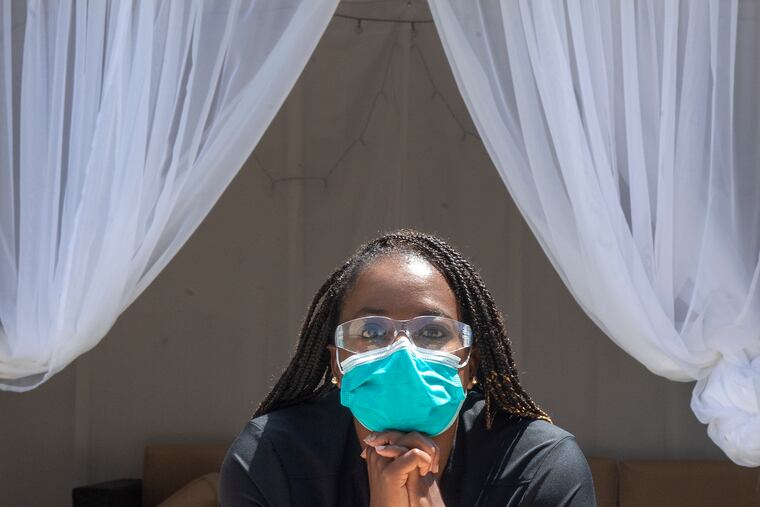As counties reopen, dental workers will be at high risk for infection | Coronavirus Newsletter
Plus, a guide for deciphering scientific studies during a pandemic

TL;DR: Dentists are desperate to restart their practices, but struggle to find hygienists willing to risk constant exposure to saliva and respiratory droplets that could carry the coronavirus. And the state’s safety guidelines, some of which contradict each other, have created confusion about best practices.
— Allison Steele (@AESteele, health@inquirer.com)
What you need to know:
🚗 PennDot resumed scheduling driver and motorcycle road tests for the first time since March.
😷 Philadelphia officials said anyone who attended recent protests should get tested for COVID-19 or stay home for two weeks.
💰 Federal stimulus checks aren’t reaching a growing number of seniors in Pennsylvania’s long-term-care homes, according to watchdog advocates and state agencies.
🎓 Temple University will open for in-person classes this fall.
📰 In a partnership between The Inquirer and the Lenfest Local Lab, leveraging technology built in the Brown Institute, we have organized recent coverage of the coronavirus pandemic by local counties mentioned in the stories.
Local coronavirus cases
📈The coronavirus has swept across the Philadelphia region and cases continue to mount. The Inquirer and Spotlight PA are compiling geographic data on tests conducted, cases confirmed, and deaths caused by the virus. Track the spread here.
As businesses lurch toward reopening, there may be no workforce facing as tough a challenge as dentists and hygienists, my colleagues Wendy Ruderman and Sarah Gantz report. The very nature of their work — which often sends patients’ saliva out of their mouths and into the air — can put them at high risk for the coronavirus. And numerous dentists and hygienists told The Inquirer that the state’s vague safety guidelines do little to help, and could even cause harm.
As you read through news coverage of COVID-19 studies, my colleague Tom Avril has created a handy guide of potential pitfalls to watch for when interpreting scientific studies. For example: If the research was done on lab animals, caution is warranted. Scientists have cured cancer many times in mice, only to find that the treatment did not work in people.
Helpful resources
What are the first symptoms of the coronavirus?
Unsure what 6 feet apart looks like? We explain.
Here are 8 principles of social distancing to help figure out what you can and can’t do.
Not sure what a medical term means? We have definitions for you.
Have another question? Our reporters have tracked down answers.
You got this: Learn the rules for dining out in the ‘yellow’ phase
With the possible exception of Philadelphia, on Friday almost all of the state’s counties are scheduled to move into the “yellow” phase of reopening. And that means the possible return of outdoor dining, a hallmark of summertime. There are plenty of restrictions, some required, others suggested. Here’s what to expect at local bars and restaurants.
🎧 When a Philly hairstylist realized she was as skilled with listening and offering life guidance as she was in cutting and coloring, she started her own podcast. She’s even done a “Quarantine Series.”
💊 As protests continue in Philadelphia, here’s what you can do about getting your medication if your regular pharmacy is closed.
📦 When COVID-19 shut down businesses, a group of artisans devised a way to keep selling their cheese, coffee, beer, ice cream and other treats with Joy Boxes, customizable care packages.
Have a social distancing tip or question to share? Let us know at health@inquirer.com and your input might be featured in a future edition of this newsletter.
What we’re paying attention to
Seven out of 10 Americans say they would get a coronavirus vaccine, if one was available, a Washington Post-ABC poll finds.
The treasury official in charge of the coronavirus bailout has ties to an investment firm that has benefited from the federal funds, ProPublica reported.
Can first-year college students defer enrollment until things get back to normal? According to this Billy Penn report, it depends on the school.
Enjoy getting our journalism through email? You can also sign up for The Inquirer Morning Newsletter to get the latest news, features, investigations and more sent straight to your inbox each morning Sunday-Friday. Sign up here.